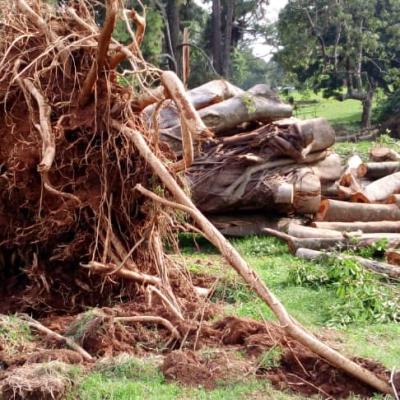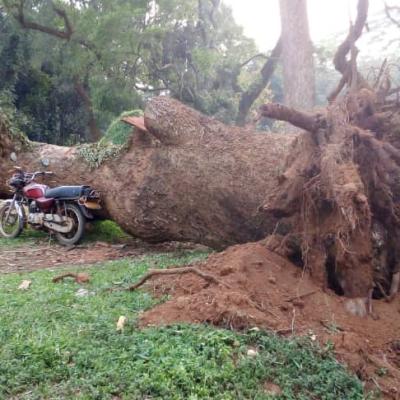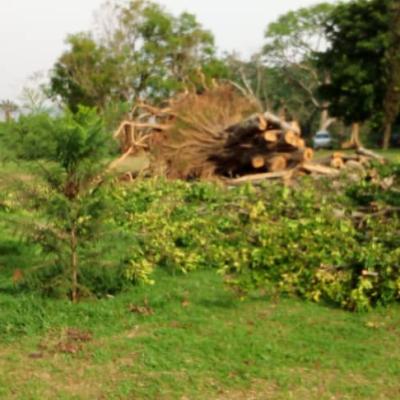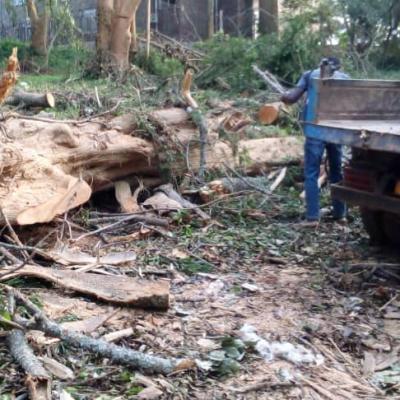Destruction
MASSIVE TREE DESTRUCTION AT ENTEBBE BOTANIC GARDENS
Plant Genetic Resources for Food and Agriculture (PGRFA) are major assets in Uganda’s quest for poverty reduction, food security, medical and industrial expansion. These resources are however, endangered by human activities like the herbal industry, mining and deforestation.
It being the first place where agricultural research started in Uganda, the historical Entebbe Botanic Gardens (EBG) has since then, made incredible improvement in promoting PGRFA conservation and management. Despite the fact that most studies, report trees being rapidly affected by human activities, EBG has been intact for over 100 years. The gardens regularly engaged communities and school groups in their education and awareness programs to emphasize its importance and thus drastically reduced human threats. However, shortly after the Covid 19 pandemic effects which lead to loss of revenue and food insecurity intimidation, the garden faced yet another unpredicted devastating outbreak. On the fateful night of 17/02/2022, one would think it rained cats and dogs in Entebbe town, but, that wasn’t the case. A “tsunami’’ like natural disaster occurred and the botanic garden was a victim to the extreme disaster of a violent storm. A witness locally referred to it as “Lusoke” in Luganda – a rainbow furiously operating in the lake, causing incidences similar to an earthquake. The garden experienced massive ecosystem damage, broken branches and uprooting of over 123 trees from 44 tree species of economic benefits beyond transformation [See photos bellow]. There is urgent need to embrace nature and restore Uganda’s lost plant/animal species for current and future long-term biodiversity conservation at the Entebbe botanic gardens.












